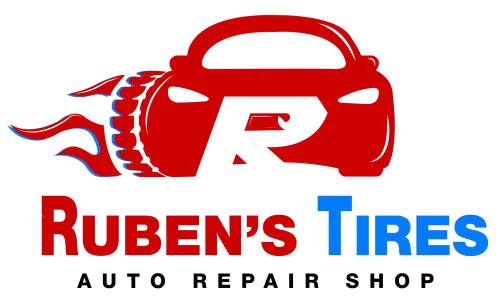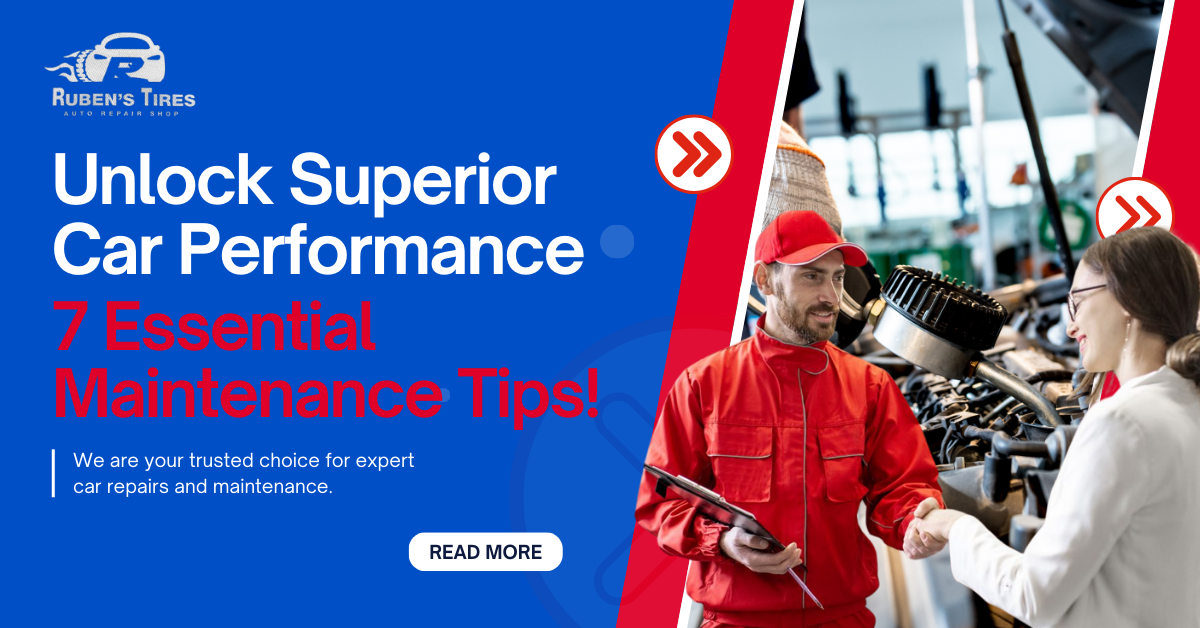Car maintenance isn’t just about keeping your vehicle running—it’s a crucial step to ensuring safety, fuel efficiency, and long-term performance. Every component in your car works together to deliver optimal results, and neglecting even one can disrupt this harmony.
Let’s dive into the science behind essential car maintenance practices and tips for maintaining your car’s health year-round.
Looking for reliable car maintenance services? Visit our Car Maintenance Services Page for expert solutions.
Why Routine Car Maintenance Is Essential
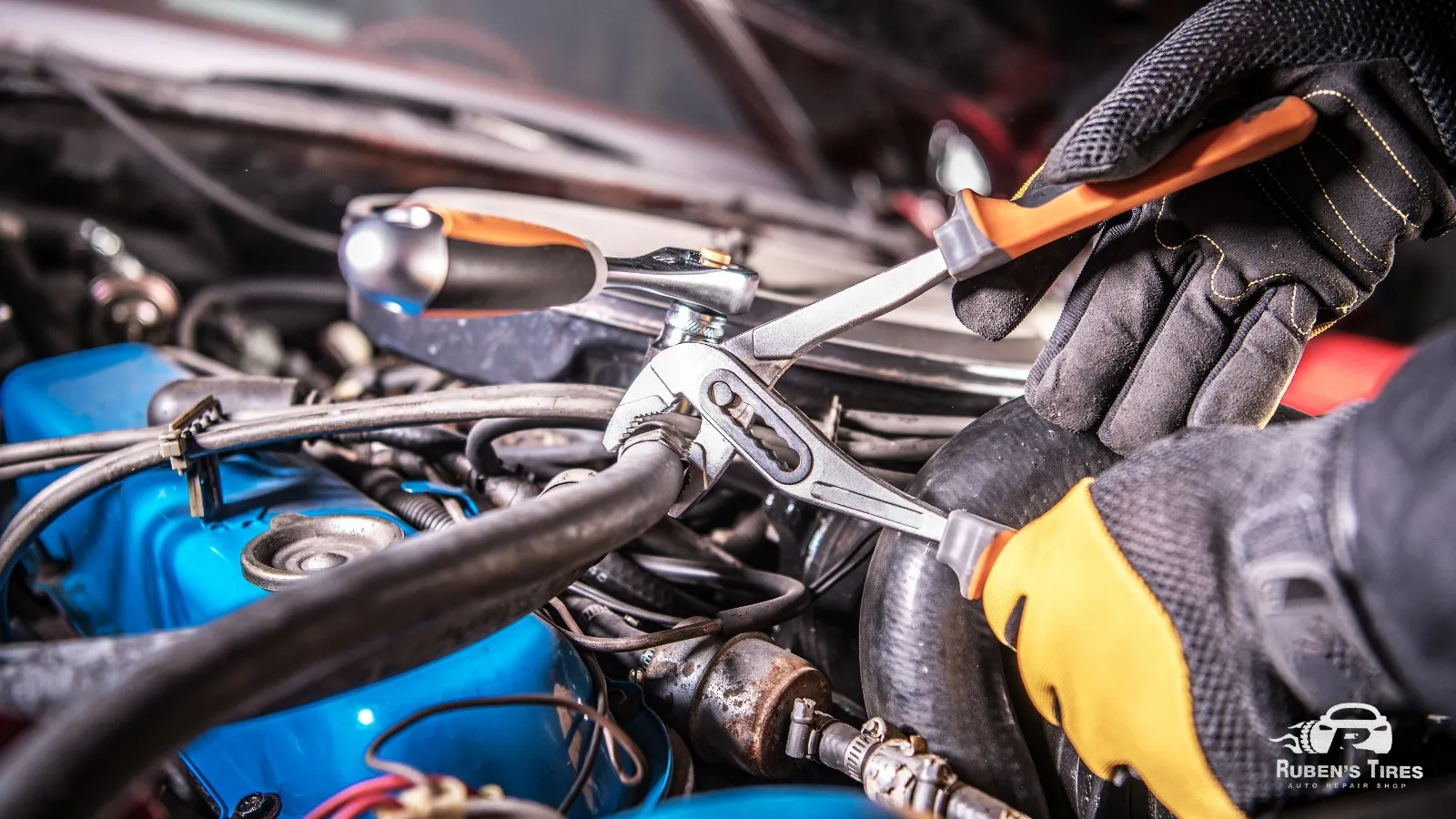
Your car is a complex machine where every system—engine, tires, brakes, fluids, and more—works in harmony to deliver a safe and smooth driving experience. To keep this harmony intact, routine car maintenance is vital.
Each component relies on precise mechanics and chemistry to function optimally, and even minor neglect can disrupt this balance.
Key Examples of Essential Car Maintenance
- Oil Changes: Prevent sludge buildup that restricts lubrication, causing engine overheating and increased wear.
- Brake Systems: Depend on hydraulic pressure and fluid quality to transmit stopping power effectively. Failing to replace brake fluid can lead to reduced brake performance and safety risks.
- Tires: Ensure traction and stability, especially during sudden maneuvers or wet conditions. Worn or improperly inflated tires reduce fuel efficiency and compromise handling.
Neglecting Car Maintenance: Small issues like uneven tire wear, dirty oil, or low brake fluid levels can escalate into expensive repairs, unexpected breakdowns, and safety hazards.
Stay Ahead: Avoid these risks by scheduling seasonal car maintenance packages with Ruben’s Tires. Our experts ensure every component functions at its best.
Benefits of Regular Car Maintenance
Routine maintenance offers several long-term advantages:
- Enhances Fuel Efficiency and Reduces Emissions
Clean oil, properly inflated tires, and functional sensors allow your car to operate at peak efficiency, lowering fuel consumption and emissions. For instance, replacing a clogged air filter can improve gas mileage by up to 10%. - Extends Your Vehicle’s Lifespan
Regular servicing prevents excessive wear and tear, ensuring your car remains reliable for years. A well-maintained car can last well beyond 200,000 miles with proper care. - Prevents Expensive Breakdowns
Addressing small issues early, like replacing worn brake pads or checking fluid levels, can save thousands in potential repair costs. For example, a $50 oil change is much cheaper than replacing a seized engine. - Maintains Resale Value
A detailed service history demonstrates care and reliability, making your vehicle more appealing to potential buyers and boosting its resale value.
Did You Know?
- Proper car maintenance can reduce fuel consumption by up to 15%, saving you hundreds of dollars annually.
- A vehicle that receives regular maintenance can add 5-10 years to its lifespan.
- Ignoring maintenance for critical components like tires or brakes is one of the leading causes of on-road breakdowns.
Discover more tips to optimize your car’s performance in our Car Care Blogs.
1. Oil Changes: Engine Longevity Starts Here
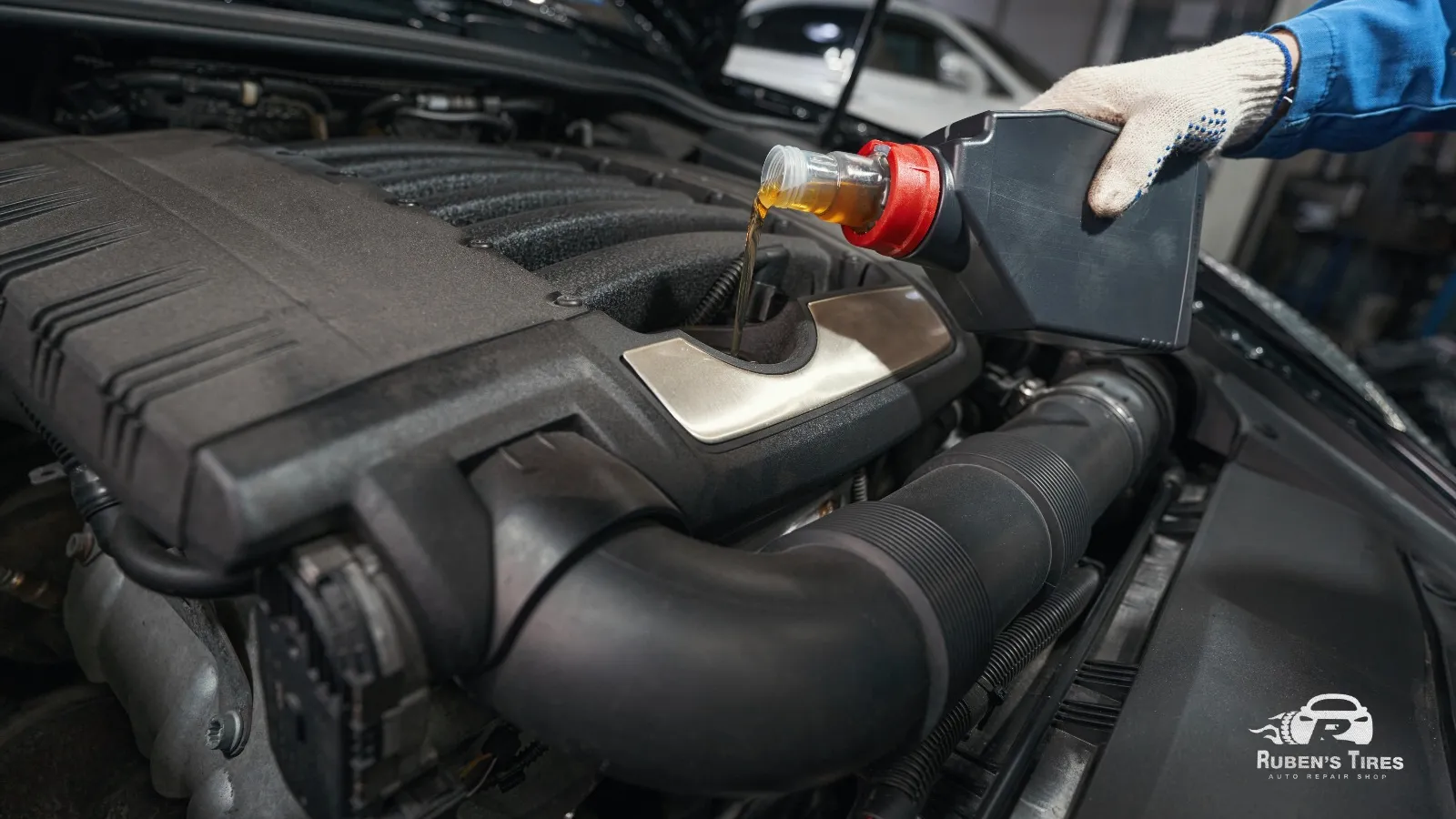
Oil acts as a lubricant, reducing friction between the moving metal components in your engine. Over time, oil degrades and collects dirt, carbon deposits, and other contaminants, losing its ability to prevent wear and overheating.
- Scientific Insight: Studies show that friction increases by up to 60% in engines running on degraded oil, leading to accelerated wear, reduced efficiency, and potential engine failure. Regular oil changes maintain the oil’s viscosity and prevent sludge buildup.
- Routine: Change oil every 5,000–7,500 miles or as recommended by your car’s manual. For vehicles in extreme conditions (e.g., towing, stop-and-go traffic, or severe temperatures), synthetic oils are ideal because they resist thermal breakdown better.
- Expert Tip: Always pair oil changes with a high-quality oil filter replacement to ensure contaminants don’t recirculate in the engine. Using the correct oil grade specified by your vehicle’s manufacturer is crucial for optimal performance.
Discover oil change Services with Ruben’s Tires today. Check Here.
2. Tire Maintenance: Balancing Safety and Efficiency
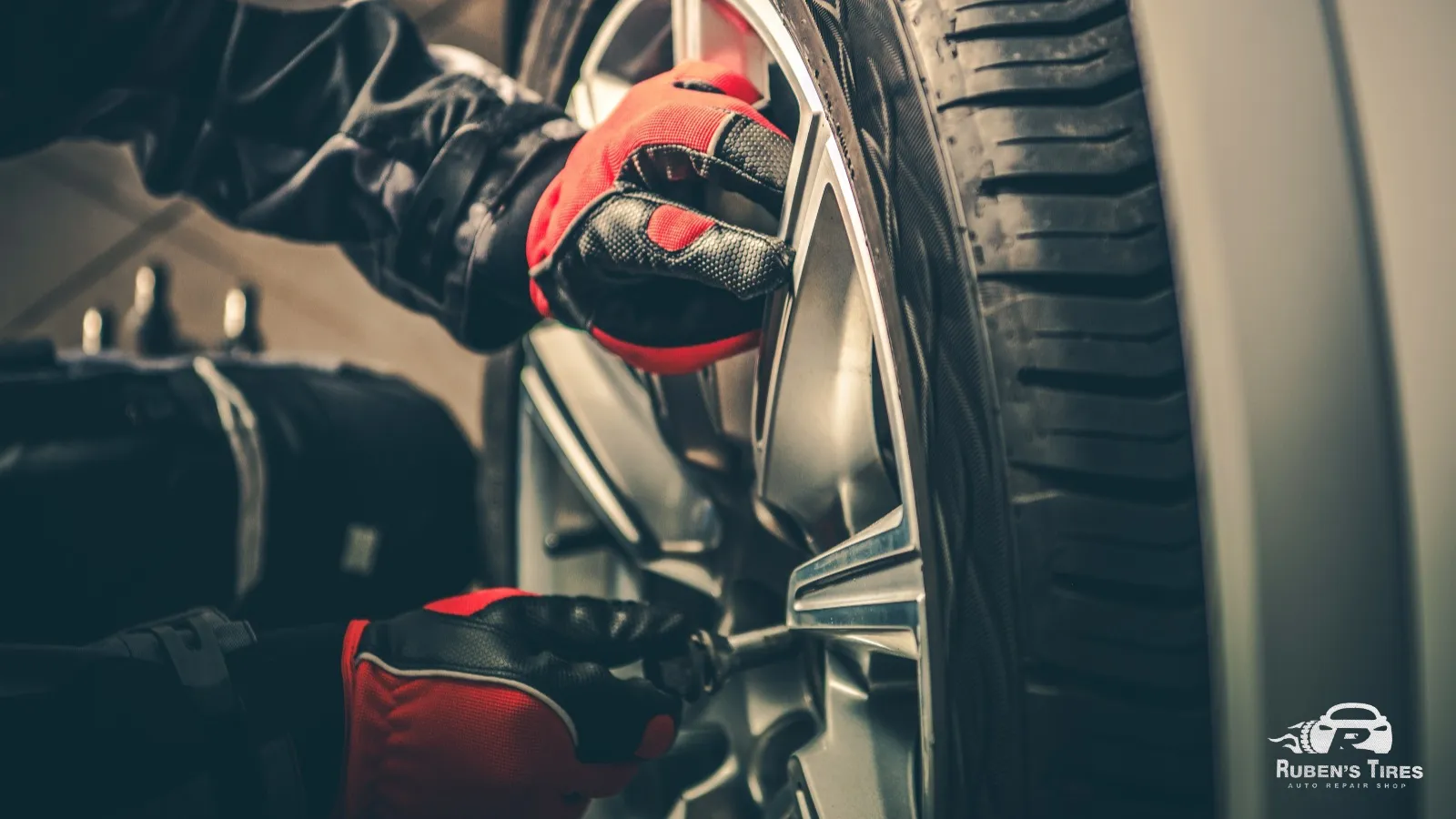
Tires are your car’s only contact with the road, and their condition significantly impacts safety, handling, fuel efficiency, and comfort. Regular tire maintenance ensures optimal traction and performance.
- Scientific Insight: Uneven tire wear can increase rolling resistance, reducing fuel economy by up to 10%. Misaligned wheels amplify this effect, causing drag and premature wear. Additionally, underinflated tires can lower mileage and increase the risk of blowouts.
- Routine: Check tire pressure monthly, rotate tires every 6,000 miles, and inspect tread depth regularly. Tires with less than 2/32 inches of tread depth are unsafe and should be replaced. Schedule wheel alignments annually or after significant impacts, such as hitting curbs or potholes.
- Expert Tip: Use a digital tire pressure gauge for accuracy and adjust tire pressure according to your vehicle’s recommended PSI (printed on the driver-side door frame). Consider switching to all-season tires for year-round safety and performance in varying weather conditions.
Need new tires or an alignment? Learn more about our tire services Here.
3. Brake System Maintenance: Stopping Power You Can Trust
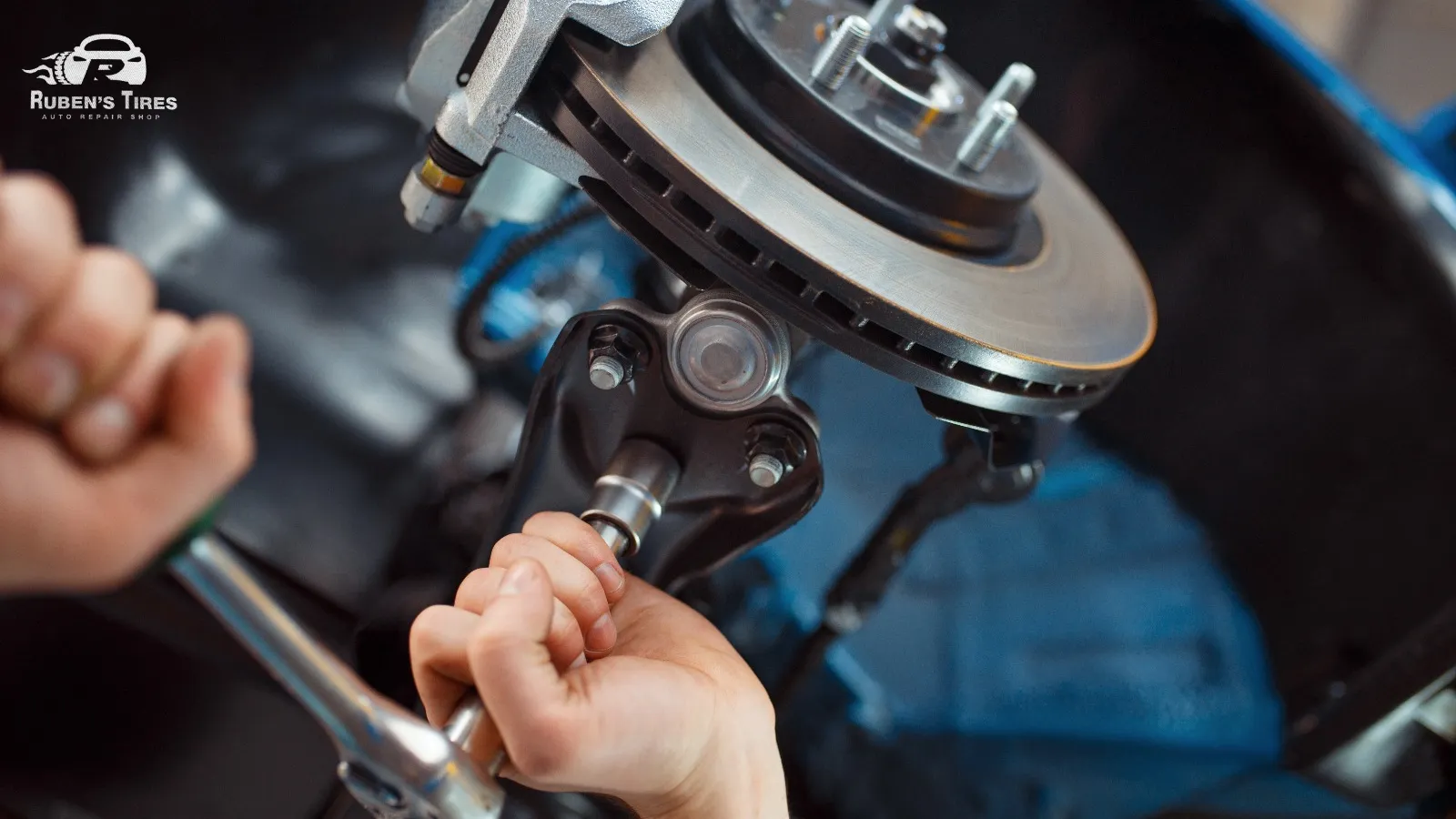
Your car’s braking system is essential for safety, relying on hydraulic pressure to effectively bring your vehicle to a stop. Worn brake components or contaminated fluid can significantly reduce stopping power.
- Scientific Insight: Brake fluid absorbs moisture over time, lowering its boiling point and increasing the risk of brake fade or failure during prolonged use. This is especially dangerous in stop-and-go traffic or on steep descents.
- Routine: Inspect brake pads every 6 months and replace them when they wear down to 3mm thickness. Flush and replace brake fluid every 2 years to remove contaminants and maintain hydraulic efficiency.
- Expert Tip: Pay attention to warning signs like squealing or grinding noises, reduced braking performance, or a spongy brake pedal feel. These are early indicators of issues requiring immediate attention.
Ensure your safety. Check out our professional brake inspection services Here.
4. Battery Health: Chemistry in Motion
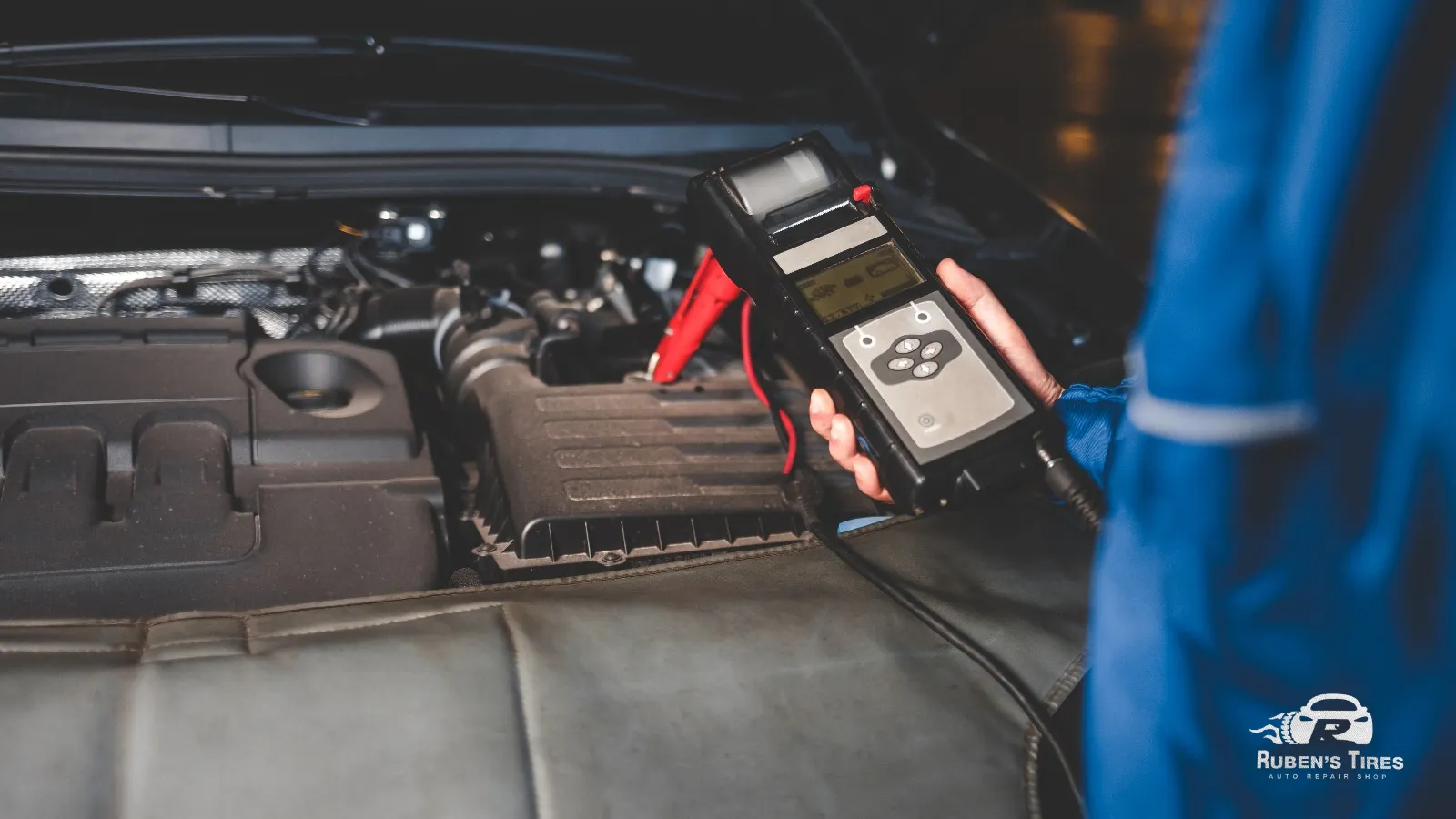
Your car’s battery provides the power necessary to start the engine and run essential electronics. Over time, it can lose efficiency due to sulfation, corrosion, or natural wear.
- Scientific Insight: Sulfation occurs when lead sulfate crystals form on the battery’s plates, reducing its ability to hold a charge. This process accelerates in undercharged batteries or when a vehicle is left unused for long periods.
- Routine: Test your battery annually after it reaches three years of use. Clean terminals with a solution of baking soda and water to remove corrosion. Consider replacing the battery every 3–5 years, depending on climate and usage patterns.
- Expert Tip: Use a trickle charger or battery maintainer to prevent discharge during extended periods of inactivity, especially in cold weather, which can reduce battery capacity by up to 50%.
5. Fluid Levels: The Lifeblood of Your Vehicle
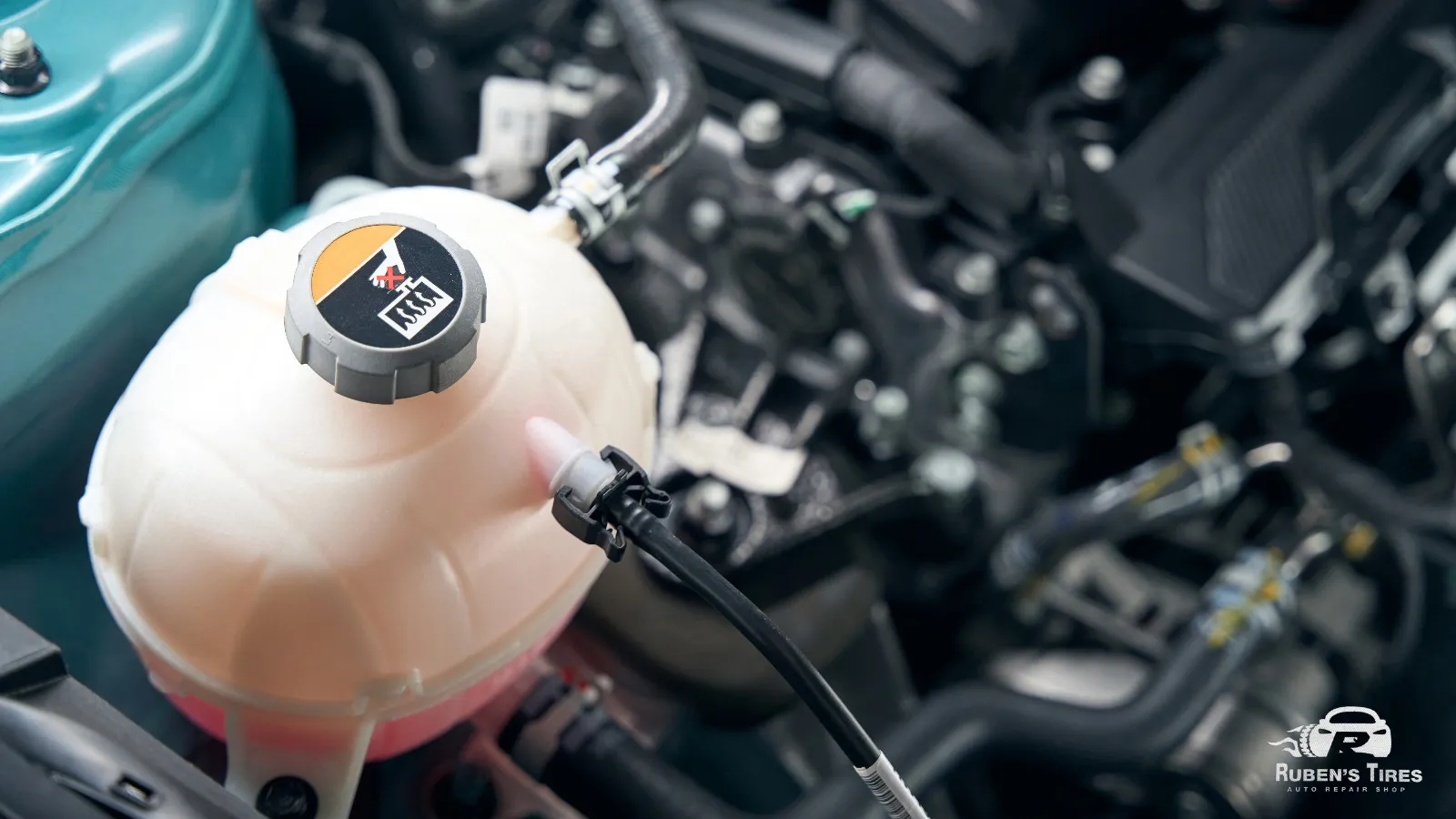
Your car relies on several critical fluids, including engine oil, coolant, brake fluid, power steering fluid, and transmission fluid. Each plays a specific role in ensuring your vehicle runs smoothly.
- Scientific Insight: Low coolant levels reduce the engine’s ability to dissipate heat, leading to overheating. Similarly, degraded transmission fluid loses its lubricating properties, causing gears to grind and wear prematurely.
- Routine: Check all fluid levels monthly and top off as needed. Replace coolant every 30,000 miles, brake fluid every 2 years, and transmission fluid every 30,000–60,000 miles, depending on manufacturer guidelines.
- Expert Tip: Always use manufacturer-recommended fluids for compatibility and performance. Look for signs of leaks under your car, as these can indicate serious issues requiring immediate attention.
Keep your car running smoothly with our fluid replacement services. Learn More.
6. Wheel Alignments and Rotations: Enhancing Performance
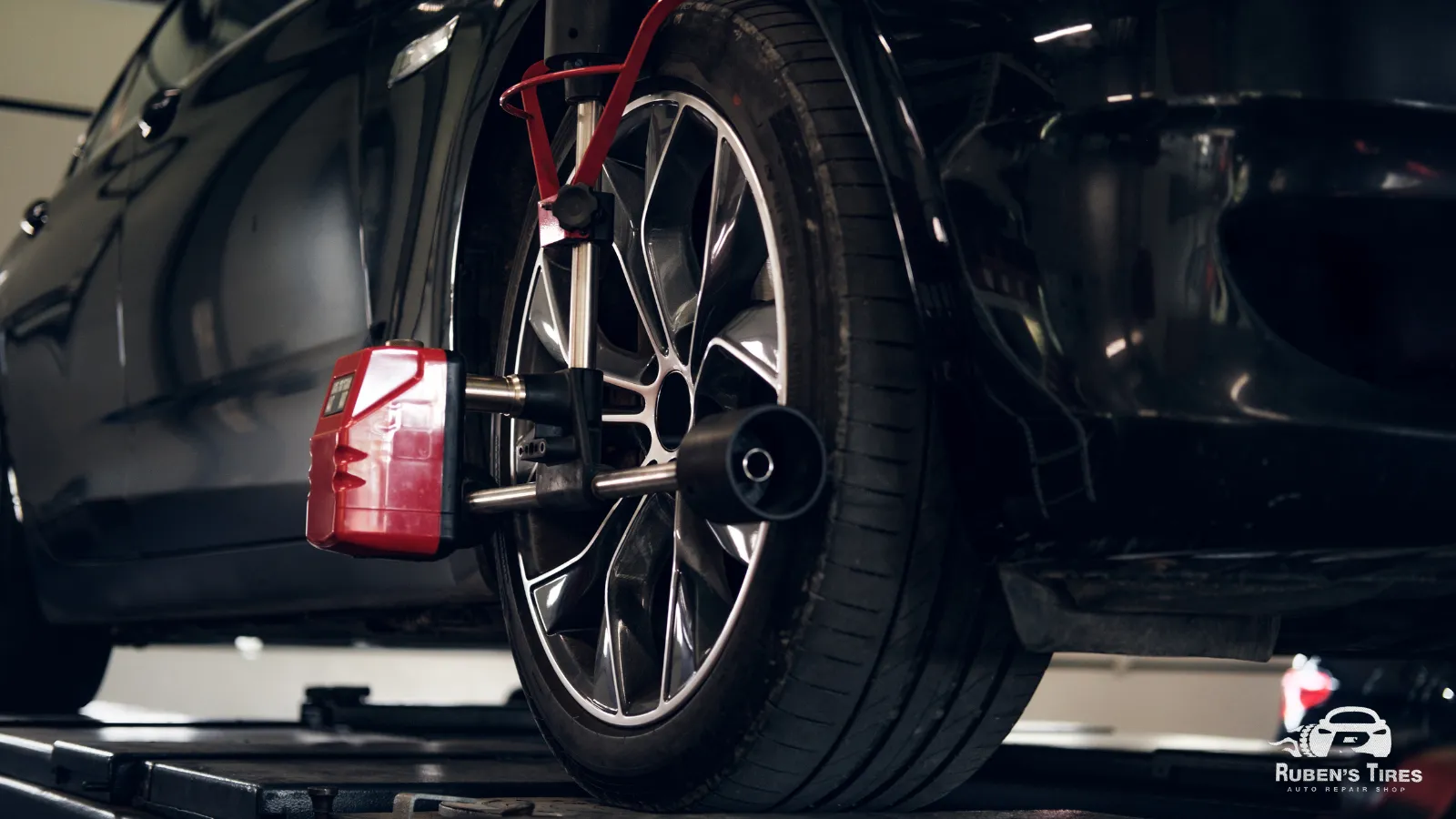
Proper wheel alignment ensures your tires point in the same direction, reducing wear, improving fuel efficiency, and providing better handling. Misalignment can lead to uneven tire wear, poor fuel economy, and strain on suspension components.
- Scientific Insight: A 1-degree misalignment can reduce tire lifespan by up to 15% and increase fuel consumption. This results in more frequent tire replacements and higher fuel costs over time.
- Routine: Schedule a wheel alignment annually or whenever your car pulls to one side, the steering feels off-center, or tires wear unevenly. Rotate tires every 6,000 miles to distribute wear evenly and prolong their life.
- Expert Tip: After hitting potholes, curbs, or other obstacles, have your alignment checked to avoid further damage to tires and suspension components.
Visit our tire alignment page for expert service.
7. Car Diagnostics: Prevention Over Cure
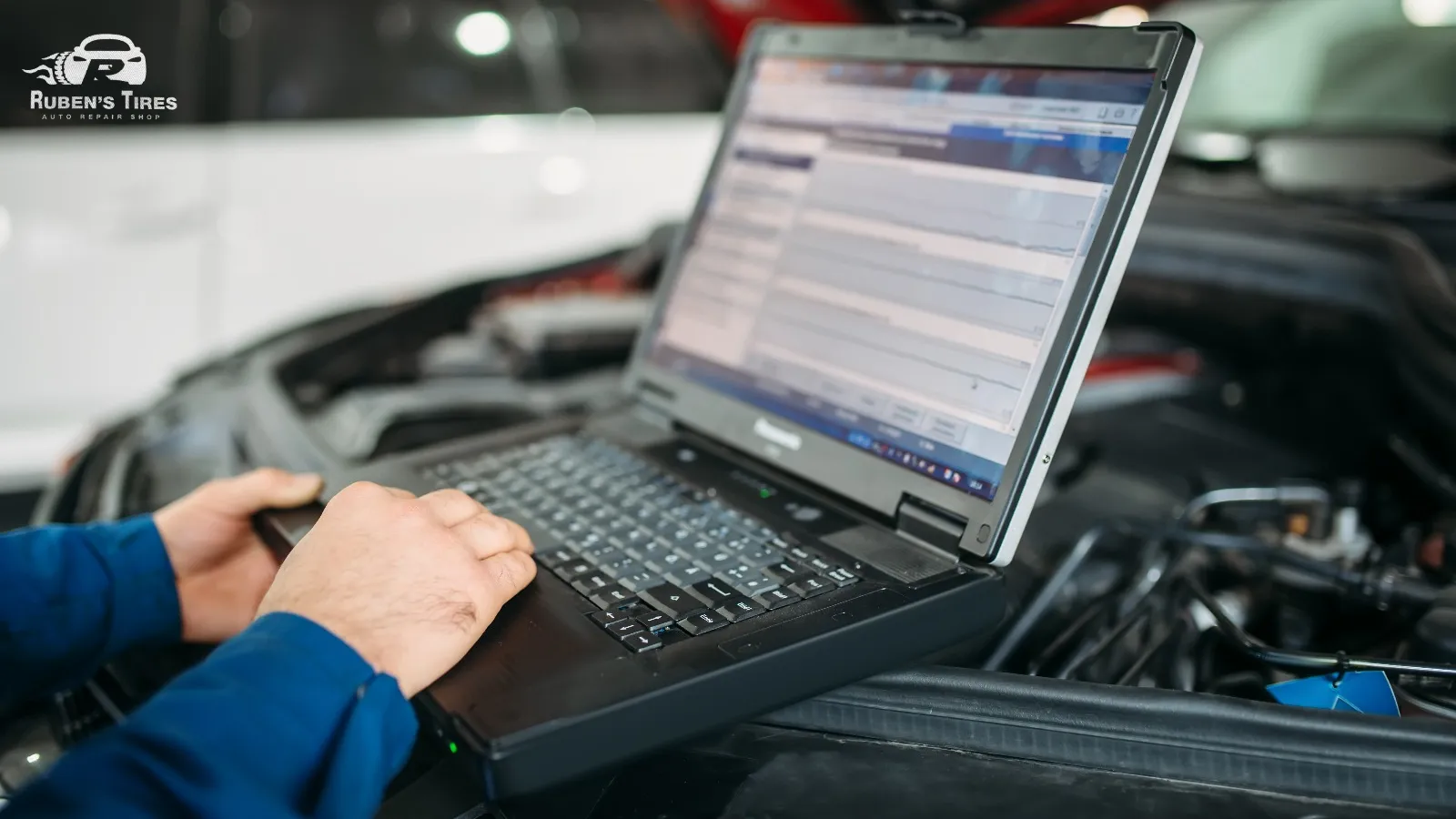
Modern vehicles are equipped with advanced sensors that monitor everything from engine health to emissions. These sensors are designed to detect potential issues early, but ignoring warning lights can allow minor problems to escalate into costly repairs.
- Scientific Insight: A faulty oxygen sensor can reduce fuel efficiency by up to 40%, significantly increasing your expenses at the pump.
- Routine to Follow: Run a diagnostic scan annually or whenever a warning light appears on your dashboard to identify and resolve issues promptly.
Expert Tip: Invest in a personal OBD-II scanner to check basic error codes and address them quickly. For more complex diagnostics, rely on professional services.
Myth: Warning lights can be ignored if the car is running fine.
Fact: Warning lights are your car’s way of alerting you to underlying problems that could worsen if left unchecked.
Stay ahead of potential issues with our professional car diagnostic services at Ruben’s Tires. Learn More.
What Happens If You Ignore Car Maintenance?

Neglecting regular car maintenance might save you time and money in the short term, but it can lead to significant consequences in the long run. Here’s what happens when routine care is overlooked:
1. Higher Fuel Costs
When key components like the engine, tires, or sensors are not maintained, your vehicle’s efficiency takes a hit.
For example:
- Dirty or old engine oil increases friction within the engine, forcing it to work harder and consume more fuel.
- Underinflated or misaligned tires increase rolling resistance, reducing fuel efficiency by up to 10%.
- A faulty oxygen sensor, a common issue in neglected cars, can decrease fuel economy by up to 40%, causing you to pay more at the pump.
Pro Tip: Regular oil changes, tire checks, and diagnostic scans can keep your car running at peak fuel efficiency, saving you money over time.
2. Expensive Repairs
Small issues left unattended often escalate into costly repairs.
- Example 1: Skipping an oil change may result in sludge buildup, leading to engine overheating and damage. A $50 oil change can prevent a $4,000 engine overhaul.
- Example 2: Neglecting brake inspections can allow pads to wear down completely, damaging rotors and calipers. What starts as a $150 brake pad replacement can turn into a $900 brake system repair.
- Example 3: Ignoring transmission fluid changes can cause gear slippage or overheating, often requiring a transmission rebuild costing upwards of $3,000.
Pro Tip: Addressing minor repairs and replacements early can prevent major expenses and extend your car’s lifespan.
3. Safety Risks
The most critical consequence of neglected car maintenance is compromised safety.
- Worn brake pads or low brake fluid levels reduce your stopping ability, increasing the risk of accidents, especially in emergencies.
- Bald tires with low tread depth reduce traction, making it harder to control your vehicle on wet or slippery roads.
- Failing headlights or taillights make it difficult for other drivers to see you, especially at night or during inclement weather.
Real-Life Example: A customer once ignored a dashboard warning light for worn brakes, which eventually led to a brake failure during a high-speed stop. The result was an accident that could have been prevented with timely maintenance.
4. Reduced Lifespan of the Vehicle
A car that is poorly maintained ages faster due to increased wear and tear on essential components.
- Skipping regular oil changes causes internal damage to the engine, reducing its lifespan by years.
- Ignoring air filter replacements allows dirt and debris to enter the engine, impacting combustion efficiency.
Pro Tip: Routine maintenance not only ensures performance but also increases your car’s resale value, as buyers prioritize well-maintained vehicles.
5. Environmental Impact
Neglected vehicles often produce higher emissions due to inefficient combustion and failing exhaust systems.
- Example: A clogged catalytic converter or malfunctioning oxygen sensor can release harmful gases like carbon monoxide and hydrocarbons into the environment.
By maintaining your vehicle, you contribute to cleaner air and a healthier planet.
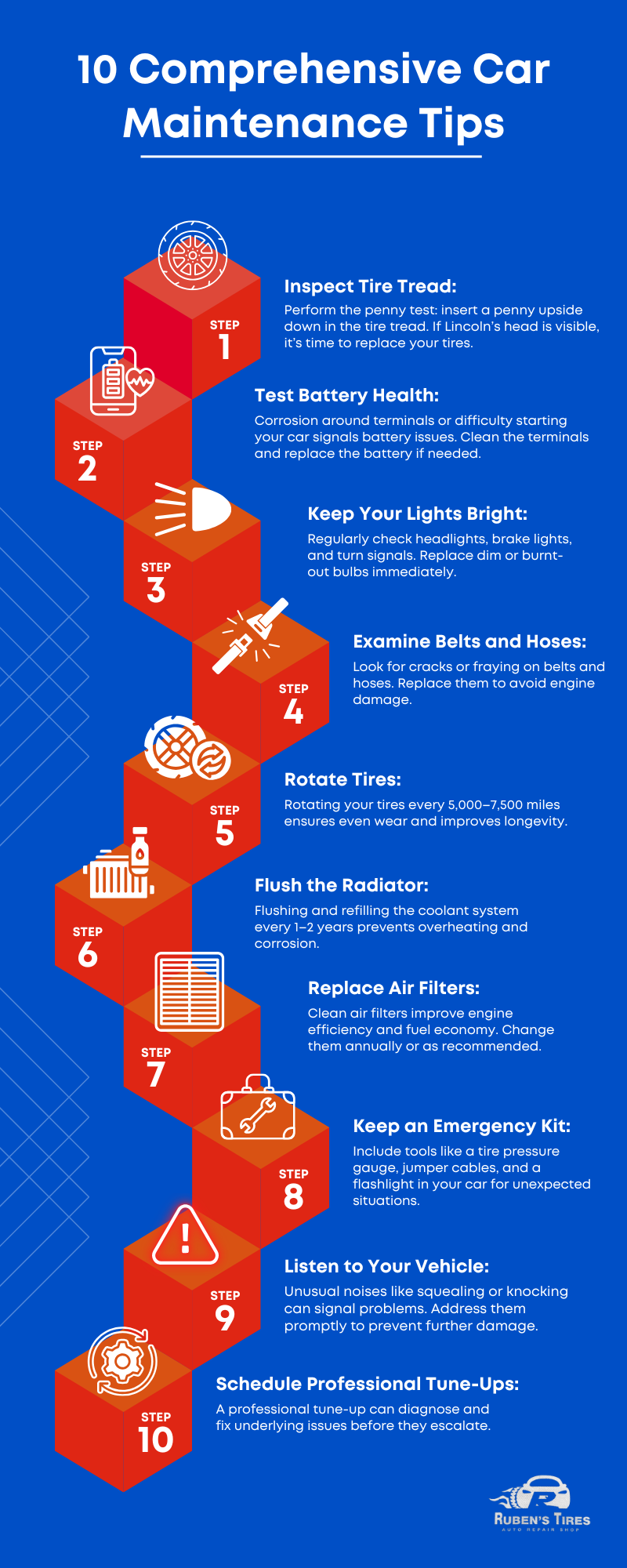
Take Action Today
Don’t let avoidable issues cost you money, safety, or peace of mind. Visit Ruben’s Tires to explore seasonal car maintenance packages and comprehensive services that keep your car performing at its best.
Master Car Maintenance: Reliable Tips & Packages Near You
In “The Short List: 10 Things Every Car Owner Should Know”, the author emphasizes the importance of proactive maintenance to prevent breakdowns. Key topics include checking oil levels, tire pressure, and serpentine belts, as well as having an emergency kit ready for flat tires.
Proper car maintenance is essential for safety, performance, and cost savings. Inspired by the video, here are the key takeaways:
- Check Oil Levels Regularly: Dirty or low oil can cause engine damage. Change oil every 5,000–7,500 miles, and always pair it with a high-quality oil filter.
- Monitor Tire Pressure and Tread Depth: Maintain proper tire pressure for fuel efficiency and safety. Inspect tread depth monthly to avoid blowouts, and rotate tires every 6,000 miles.
- Inspect Belts and Hoses: Look for cracks or fraying in serpentine belts and check hoses for leaks to prevent sudden breakdowns.
- Prepare an Emergency Kit: Keep essentials like a spare tire, jumper cables, and a flashlight in your car for emergencies.
- Seasonal Maintenance: Prepare for weather changes with fluid checks, battery testing, and tire care. Seasonal maintenance prevents wear caused by extreme temperatures.
- Brake and Battery Care: Address signs like squealing brakes or slow engine cranks promptly. Test batteries annually and replace brake pads when worn.
At Ruben’s Tires, we offer comprehensive car maintenance services, including oil changes, brake repairs, tire replacements, and seasonal maintenance packages. For roadside emergencies, our roadside assistance ensures you’re never stranded.
20 Frequently Asked Questions About Car Maintenance
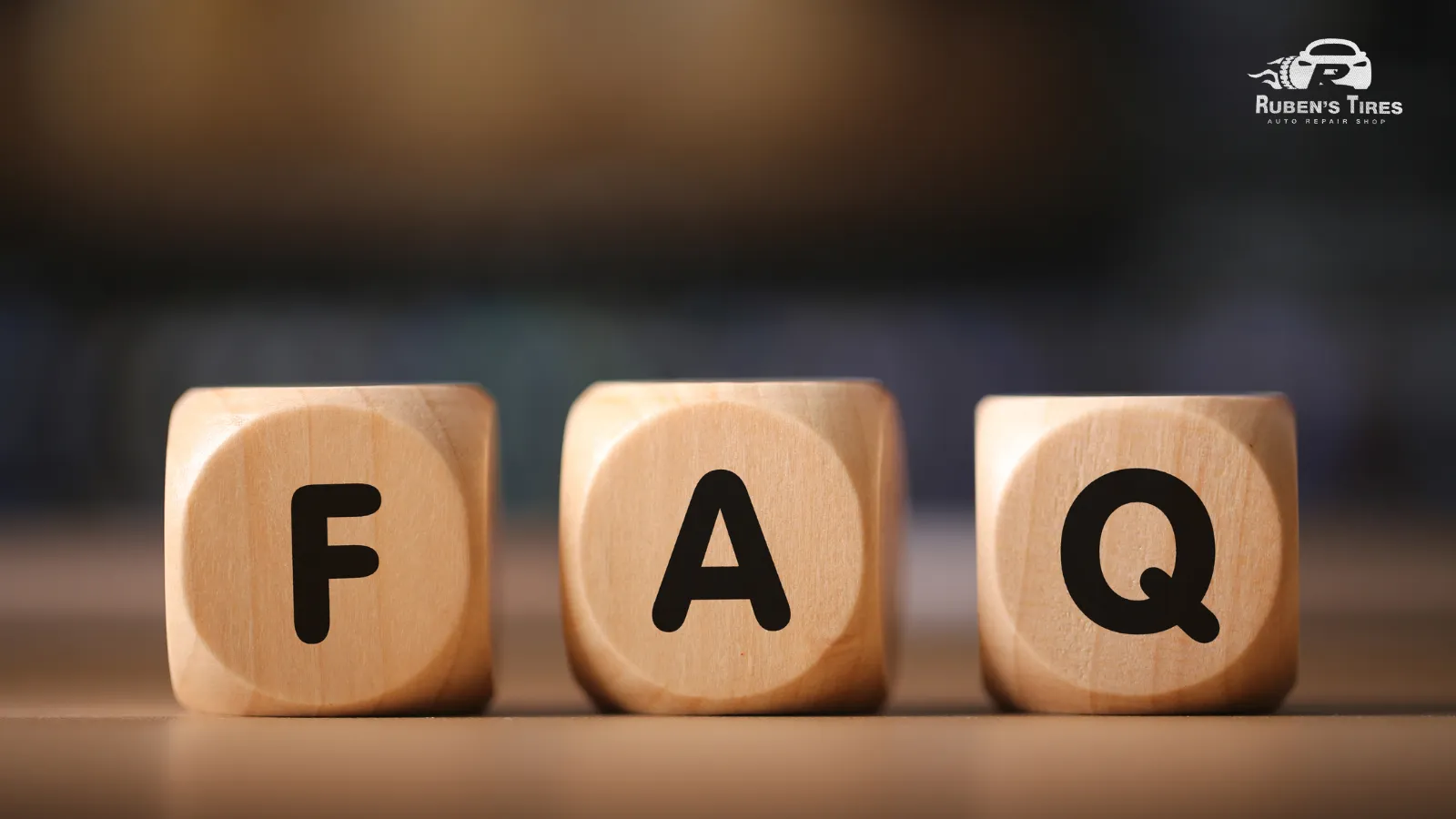
1. What is the recommended interval for oil changes?
Every 5,000-7,500 miles, depending on oil type and driving conditions.
2. How often should tires be rotated?
Every 6,000 miles to ensure even wear.
3. When should I replace my car battery?
Every 3-5 years, or earlier if it shows signs of weakness.
4. What are the signs of brake problems?
Squealing noises, soft pedals, or vibrations during braking.
5. How do I check tire pressure?
Use a pressure gauge monthly, especially before long trips.
6. Should I service my car at the dealership?
No, but keep records of all maintenance to protect your warranty. Independent shops like Ruben’s Tires provide excellent service at more affordable prices.
7. How often should coolant be checked?
Every season—low coolant can cause overheating. Our seasonal car maintenance packages include coolant level inspections.
8. Do new cars need alignments?
Yes, especially after hitting curbs or potholes. Poor alignment can affect tire wear and handling.
9. Can I replace brake pads myself?
Yes, but professional brake repair near me ensures safety and precision.
10. How does alignment affect fuel economy?
Poor alignment increases drag, reducing fuel efficiency.
11. When should I change the air filter?
Every 12,000-15,000 miles to maintain performance and protect the engine.
12. How can I improve fuel economy?
Maintain tire pressure, use synthetic oil, and drive at consistent speeds.
13. What fluids should I check regularly?
Coolant, brake fluid, engine oil, and transmission fluid.
14. How do I know if my battery is failing?
Slow starts, dim lights, and clicking noises when starting indicate battery problems. Car diagnostics service can confirm battery health.
15. Is brake fluid replacement necessary?
Yes, every two years to maintain optimal braking power and safety.
16. How does tire tread affect safety?
Worn tread reduces traction, especially on wet roads, increasing the chance of accidents.
17. Can I skip maintenance if I drive less?
No, fluids degrade over time even if the vehicle isn’t driven frequently.
18. What should I do if the check engine light comes on?
First, check the gas cap. If the light stays on, bring the vehicle in for car diagnostics service.
19. Do I need winter tires in warmer climates?
No, but all-season tires are ideal for rainy conditions in Florida.
20. What is the role of transmission fluid?
It lubricates and cools the transmission. Replace it every 30,000-60,000 miles to prevent transmission failure.
Choose Ruben’s Tires for Reliable Car Maintenance Services
At Ruben’s Tires, we combine expert knowledge with cutting-edge tools to offer the best car maintenance services near you. From oil changes to seasonal car maintenance packages, we deliver dependable care to keep your car running smoothly.
Take control of your car’s health today. Explore Ruben’s Tires’ seasonal car maintenance packages and enjoy reliable services tailored to your needs. Book Your Service Now or visit our nearest branch for a consultation.
Keep your car running like new—book your next maintenance appointment with Ruben’s Tires today HERE!
